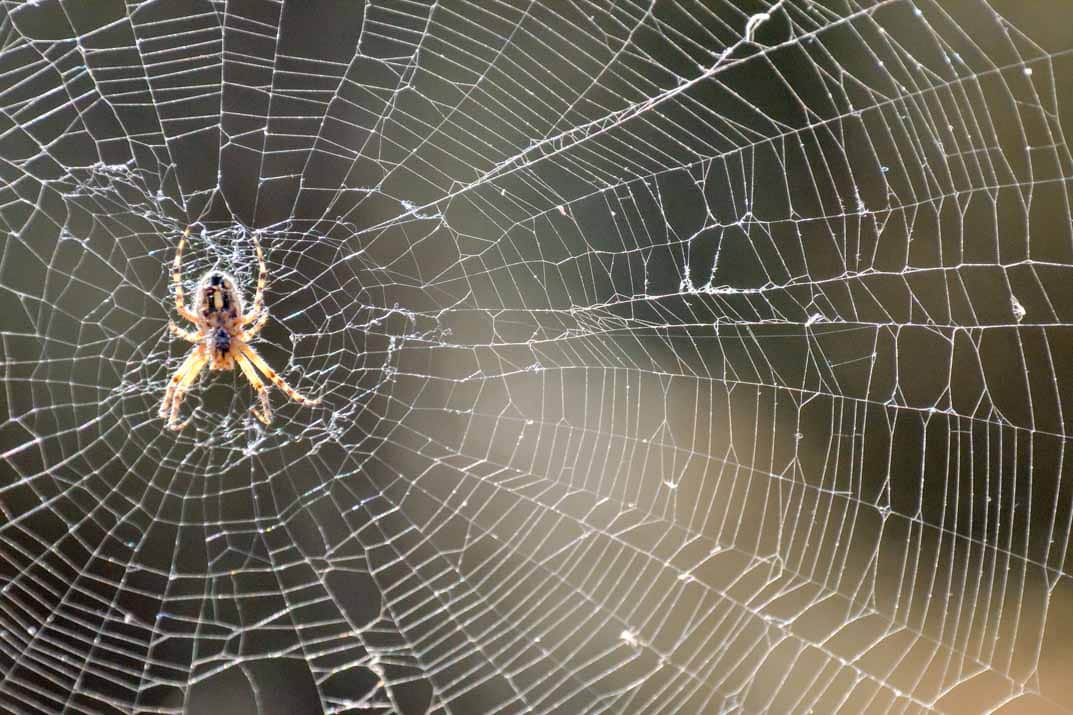If you’re like many Raleigh residents, you’ve probably had at least one surprise encounter with a spider lurking in a corner or dangling from the ceiling. While we at Wake Pest are always happy to help with professional solutions, we also recognize that a lot of homeowners prefer trying a few do-it-yourself approaches before calling in the pros. That’s why we’ve put together a friendly, comprehensive guide on easy home maintenance tasks that can dramatically reduce your spider encounters.
1. Seal Up Those Entry Points
Spiders don’t teleport; they walk (or occasionally hitch a ride on boxes or other items). Sealing potential entry points is one of the most effective ways to keep them out. Here’s how:
- Check Doors and Windows: Look for gaps around doors and windows. Use weather stripping or door sweeps to close these gaps.
- Fill in Cracks: Inspect your home’s foundation, walls, and any areas where utility lines enter. Seal cracks with caulk or expanding foam.
- Repair Screens: Torn or loose window screens are like welcome signs to insects and spiders. Fix or replace damaged screens promptly.
A good rule of thumb is that if you can see daylight around a door frame or window, it’s probably big enough for a spider to squeeze through. Spend a weekend afternoon going around your house to seal up these spots. It’ll not only reduce spiders but also improve your home’s energy efficiency.
2. De-Clutter and Clean Regularly
Spiders love hiding in areas where they won’t be disturbed. Clutter in basements, attics, or garages provides endless hiding spots. Here’s what to do:
- Storage Solutions: Use sealed plastic bins instead of cardboard boxes, which are easier for spiders to crawl into and build webs.
- Organize High-Traffic Areas: Keep common areas clear of stacks of books, papers, or clothing. The more items lying around, the more potential spider habitats you create.
- Frequent Dusting and Vacuuming: Regular cleaning can remove spider eggs and webs before they develop into a bigger issue.
You don’t have to go full “Marie Kondo,” but a moderate amount of organization goes a long way in discouraging spiders from settling in.
3. Turn Off Outdoor Lights When Possible
Ever notice how outdoor lights become magnets for moths, beetles, and other insects at night? Spiders notice, too. By reducing outdoor lighting at night, you can decrease the insect population around your home, making it less appealing for spiders.
If you need lighting for security or aesthetic reasons, consider using motion-activated lights or yellow “bug” bulbs, which are less attractive to insects. This doesn’t guarantee a spider-free zone, but it can significantly cut down on their potential food source.
4. Manage Moisture Levels
Spiders—and the insects they feed on—thrive in moist environments. If you have leaky pipes, poorly ventilated bathrooms, or a damp basement, you’re basically rolling out the red carpet for them. To keep your home’s moisture levels in check:
- Fix Leaks Promptly: Even a slow drip under the sink can create a mini ecosystem for insects and spiders.
- Use Exhaust Fans: Turn on fans in bathrooms and the kitchen to clear humidity after showers or cooking.
- Invest in a Dehumidifier: If your basement or crawl space is damp, a dehumidifier can help keep humidity levels below 50%.
Maintaining a dry environment not only discourages spiders but also helps prevent mold and other pests like cockroaches.
5. Outdoor Landscaping Tips
Keeping spiders at bay starts outside. By making a few tweaks in your yard, you can reduce the likelihood that spiders will wander indoors:
- Trim Back Vegetation: Keep shrubs, trees, and other plants from directly touching the house. Spiders (and insects) use branches as “bridges” to get inside.
- Avoid Woodpiles Against the House: Woodpiles are prime spider territory, especially for species like black widows. Store firewood away from the exterior walls.
- Remove Debris: Piles of leaves, grass clippings, or compost can attract insects and, by extension, spiders.
While you can’t keep every spider from setting up camp outside, a well-maintained yard means fewer spiders will make the leap into your home.
6. Natural Repellents You Can Try
Many homeowners ask about natural deterrents that may help keep spiders at bay. While these methods aren’t always as potent as commercial pesticides, they can be part of a broader strategy:
- Essential Oils: Peppermint, citrus, and tea tree oils are often cited for repelling spiders. Mix 10-15 drops in a spray bottle of water and mist areas where spiders may enter.
- Vinegar Solutions: A 1:1 mix of vinegar and water sprayed along baseboards and corners might deter spiders, though it can leave a noticeable smell until it dries.
- Cedar Wood: Cedar chips or blocks in closets can help deter moths and possibly spiders.
Keep in mind that scientific evidence for these remedies varies. Still, they’re relatively harmless to try, and some homeowners report success, especially when combined with the other preventative measures listed here.
7. Regular Inspection and Maintenance
Prevention isn’t a one-time deal. Spiders can appear anytime, especially when seasons change. Try scheduling a monthly or quarterly inspection of your home:
- Look for new webs or egg sacs in corners, closets, and basements.
- Check the integrity of seals around doors and windows.
- Ensure no new leaks or moisture issues have cropped up.
Having a routine ensures that you catch minor issues before they become major infestations. If you spot an uptick in spider activity, it might be time to step up your efforts or call in a professional.
8. Educate Your Household
Everyone living under your roof should understand the basic steps to prevent spider incursions. Teach kids (and even adults who might be a bit squeamish) simple steps such as:
- Turning off lights when they leave a room.
- Reporting any leaks or dripping faucets.
- Shaking out shoes or clothes that have been unused for a while.
When everyone cooperates, it’s easier to maintain a spider-unfriendly environment year-round.
Why DIY Prevention Matters
Some folks might wonder, “If I can just call a pest control company, why bother with DIY prevention?” The answer is twofold:
- Cost Savings: Implementing these simple steps can reduce the frequency of professional treatments you might need.
- Long-Term Efficacy: Even if you hire a pest control service, without proper preventive measures, spiders (and other pests) may simply re-enter your home.
We at Wake Pest are always here if you need us, but our goal is to empower you to take control of your living space. A little elbow grease and consistent effort can significantly lower the spider population in your home.
When to Call the Professionals
Despite best efforts, there are times when calling a professional is the best course of action. If you notice any of the following, it’s time to pick up the phone:
- Multiple Venomous Spiders: If you’re repeatedly spotting black widows or brown recluses, it’s safer to have experts handle them.
- Large Infestations: If your efforts aren’t curbing the spider population, professional treatments might be necessary.
- Health Concerns: Severe arachnophobia or allergies might warrant a more aggressive approach for peace of mind.
At Wake Pest, our approach to spider control balances effective treatments with eco-friendly methods, whenever possible. We’ll assess your home, identify problem areas, and develop a customized plan to address your concerns.
Final Thoughts
DIY spider prevention doesn’t have to be complicated or expensive. Often, it’s a matter of consistent, proactive home maintenance—sealing cracks, reducing clutter, managing moisture, and staying mindful of your outdoor lighting and landscaping. By following these steps, you can significantly lower your chances of unwelcome spider encounters.
And remember, if DIY methods aren’t cutting it or you simply want extra peace of mind, our friendly, knowledgeable team at Wake Pest is just a phone call away. We’re always glad to lend our expertise to ensure you and your family stay comfortable in your Raleigh home—without unexpected arachnid visitors.

